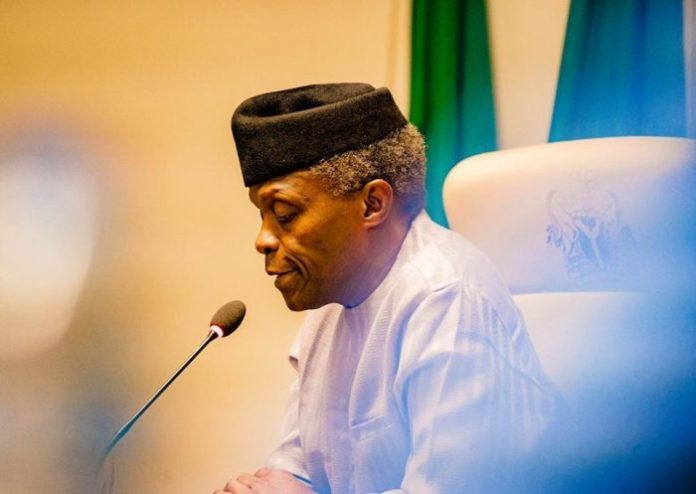How Osinbajo led NSA, Ministers to save Nigeria from major int’l backlash – Presidency
The Presidency has disclosed how President Muhammadu Buhari asked Vice President, Prof Yemi Osinbajo to coordinate efforts to resolve a nagging problem faced by international agencies and NGOs in reaching remote areas in the troubled North-East with vital food supplies.
A statement signed by Presidential Spokesman Femi Adesina disclosed that the UN had earlier expressed concern that terrorists’ violence had driven humanitarian needs up in Nigeria. But at the same time some international NGOs -INGOs-were experiencing worry that critical relief materials could not be safely delivered to parts of Borno State.
The situation according to government sources developed into a misunderstanding between the INGOs and the military who were questioning the activities of some of the INGOs on national security benchmarks.
But the President directed the VP, who then brought every one to the table and saved what could have led to a major international backlash against Nigeria.
According to a statement signed by Mr. Femi Adesina, Special Adviser to the President on Media and Publicity “amidst international concerns on the activities of terrorists and violent extreme groups in the North-East, the United Nations has commended the Federal Government’s efforts to improve humanitarian support in the region, saying the Buhari Administration “has taken important steps to improve access to people in need.”
Adesina noted that “lately, some international humanitarian Non-Governmental Organisations (NGOs) have expressed worry on their inability to operate effectively and distribute relief materials in parts of the North-East because of security concerns especially in some remote areas of Borno State.
“In a bid to reverse the trend and ensure effective access to vital food supplies, the Humanitarian Affairs Minister, the National Security Adviser and members of the National Humanitarian Coordination Committee, escalated the matter to the Presidency. The President then mandated the Vice President to work with the Committee, Governors in the region and relevant MDAs, including service chiefs to resolve the matter in conjunction with international NGOs and multilateral agencies operating in the region.
“The Vice President then held series of meetings, bringing together the governors, all the relevant government agencies and representatives of international agencies and INGOs.
“This intervention by the Presidency has led to a renewed and coordinated effort of providing a new template that supports the activities of the INGOs and offers a more secured access to the areas in question.
“In reaction to this intervention and new arrangement, the United Nations Secretariat in a briefing last week by the Under Secretary-General for Humanitarian Affairs and Emergency Relief Coordinator, Mark Lowcock to the UN Security Council said: ‘I am pleased to report we have had constructive engagements in recent days with the Nigerian authorities, and the Government has taken important steps to improve access to people in need, which we look forward to building on further.”
Adesina concluded that Lowcock had indicated to the Security Council earlier that “In north-east Nigeria, as we told you…violence by extremist non-state armed groups is largely responsible for driving up humanitarian need.”


